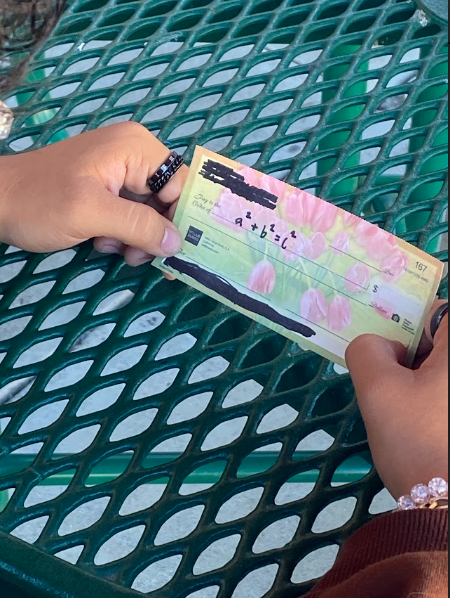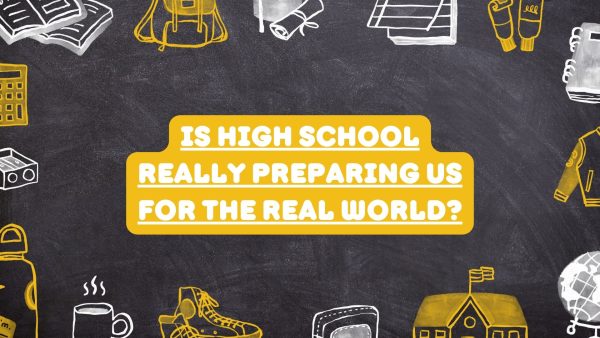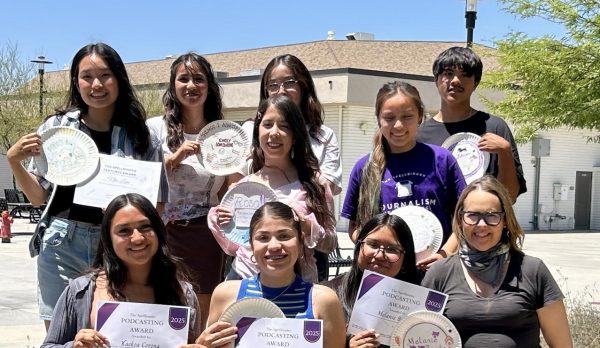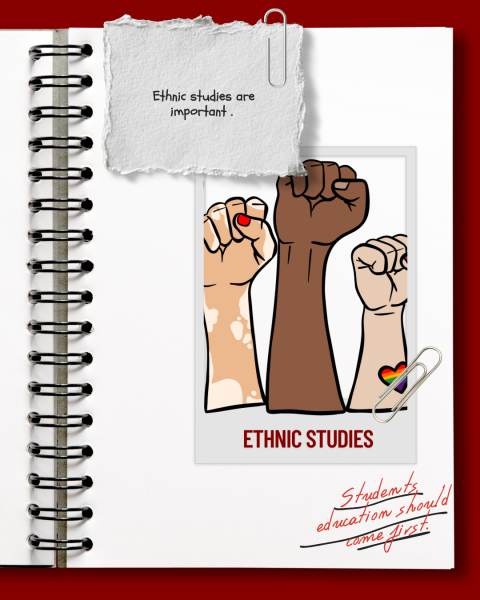Does school successfully prepare students for adulthood?

An MCHS student does not know how to fill out a check.
Many films highlight college life as a spectacular time in one’s life. Parties rage on until 3 a.m. and students then magically appear unphased waking up at 7 a.m. for class. This hardly ever scratches the surface of the reality of a college student’s life. A common complaint I hear from students who graduated from high school is that school didn’t teach them important life skills. Oftentimes students find themselves in terrible positions and they blame schools for not teaching them the necessary skills for adulthood. This might include, for example, not knowing how to apply for a job or a credit card.
Being a senior and having graduation around the corner, it begs the question if schools really prepare all its future graduates for adulthood. I was fortunate enough to learn skills like cooking and financial literacy but not everyone has these skills that can make all the difference.
Schools teach us the basic subjects and skills that will benefit us in life such as English, math, science, and socializing. However, we don’t learn everything that we should. Certain life skills can potentially play a huge factor in the success and fulfillment of one’s life. For example, public schools don’t usually teach us financial literacy, cooking, emergency response and first aid, local law and civic rights, and mental health.
Our initial goal is wanting to grow up and become independent from our parents so that it can be easier to follow our dreams and live the lives we want. Lacking these certain types of life skills can potentially postpone that goal.
Perhaps one of the scariest yet most important transitions in our life is from high school to the first year of college and adulthood. This transition can be even more difficult when students are faced with problems they don’t know how to handle.
25-year-old Aldo Moreno spoke up about his struggles of attending university and balancing out his life with hardly any life skills.
Moreno said, “ It was definitely a hard and dark time for me. I was absolutely not prepared for university. Since I couldn’t budget my finances, I found myself eating cup noodles and not being able to eat or cook a decent meal. Especially since I wasn’t in a situation where I could go home and have something prepared by my mom it was difficult. I remember being so excited for college to only find out it was not as easy as I thought it would be.”
From my experience, the majority of students don’t realize the importance of money. Especially once they become independent they find themselves having plenty of questions regarding how they will spend their money. 22-year-old Naomi Marcos explained some of the difficulties she faced in her early years of college.
Marcos said, “ I wish school had taught me how to handle money. It was always, ‘apply for this scholarship and that grant,’ but never how to handle money that was given to myself and not for school. I made a lot of mistakes that required me to reach out to my parents to get me out of the situation. I believe schools could have done a better job informing me how to manage my money.”
The process of applying to colleges while simultaneously applying for scholarships can be stressful and time-consuming. We are so focused on them that we don’t take a step back and wonder if we have everything we need to be on our own.
“I did not feel like I had everything I needed to be successful in college. Of course I had the grades, the clubs, and the PIQs all ready but I myself felt like I was not ready for that transition to being on my own. I felt like I was definitely lacking some skills. I am grateful for having loving and supportive parents because with any issue I had I could go to them. But I know that not every student going into college has that support system,” Marcos said.
One could argue that it is the parents’ responsibility to teach their children the importance of life skills such as cooking or home repairs. Oftentimes parents don’t have the time to teach their children life skills because they are too busy. This leaves all their learning time to either themselves or during school hours.
Students at MCHS gave reasons as to why they think schools don’t teach us these sets of skills.
An anonymous student said, “Lack of funding. We can have all kinds of different electives but we just don’t have the funding. As well as allocation of funds, a lot of money is there but I don’t know where it goes. We need action plans to put real money into skills like these. In richer neighborhoods, I have seen more programs and classes that help improve these skills but that’s because the neighborhood comes together and puts money into the school.”
In other words, a possible solution would be if schools got support from the students’ families, perhaps they could be able to afford new programs or classes that set up students for a better and successful future. Not all neighborhoods are financially stable enough to help fund a school this way. Some families live from one paycheck to the next leaving no room to support schools. As a result, there would be difficulty gaining support from families whose income is low.
Another student shared her frustration on how schools demand greatness from us but don’t demonstrate how we should meet their demands.
An anonymous student stated, “ They tell us to make change in the world but how do we go about it? I had teachers approach us and tell us to do all these great things but don’t tell us how to do it.”
With this added pressure the idea of being a successful adult can be an overwhelming feeling. We have all these expectations on our shoulders from family, friends, and teachers making it difficult when some of us don’t even have the skills to be on our own. It can be easy for any student to fall due to this immense pressure, it can be hard facing the feeling of defeat when things come crashing down. 24-year-old Henry Avila explained his story on this matter.
He said, “I had so many high expectations growing up. I had the grades and everything set in stone for me. Making the move from my home to the dorms was not hard. It wasn’t until the first month I was on my own with my roommate that I realized I was not going to make it far. I was bombarded with a lot of situations all at once and I didn’t have the skills to get through them. This led to me dropping out of college so that I could develop and enhance my life skills.”
Schools don’t really offer classes that help improve these life skills. Which means students have to get creative when it comes to learning these skills. The educational system should really do a better job of preparing students when it comes to transforming a student into an efficient adult. Schools should at least go over the skills so that they are not as surprising to students. If not then I fear that schools would be sending their graduated students into a downward spiral.





































